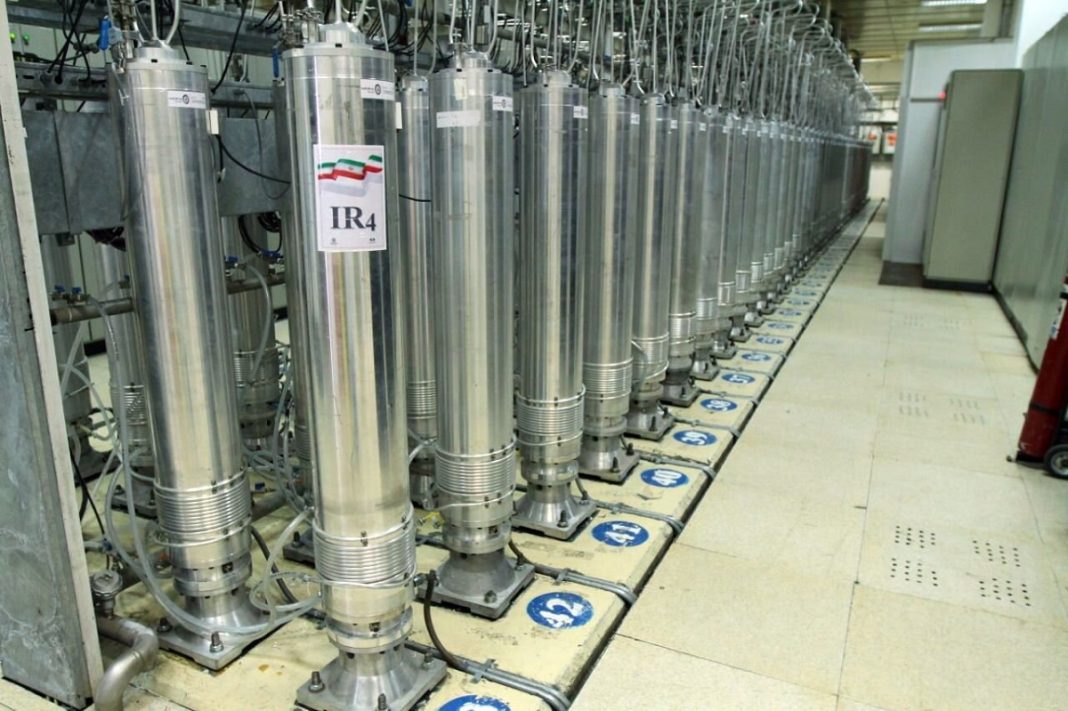The confidential report comes as Iran and the United States are negotiating a prisoner swap and the release of billions of dollars in Iranian assets frozen in South Korea. However, international inspectors also noted new challenges in trying to monitor Iran’s program.
Former US President Donald Trump pulled the US out of the JCPOA and imposed tough economic sanctions against the Islamic Republic under what he called the “maximum pressure” policy.
In 2019, Iran began its retaliatory remedial measures by reducing its commitments to the 2015 deal after the European parties to the deal — France, Germany, and Britain — failed to protect Iran’s interests under the JCPOA.
Tehran began to gradually remove a cap set in the JCPOA on its nuclear activities at bi-monthly intervals. Tehran maintained that it would reverse its nuclear decision if the Iranian economy were to be shielded from sanctions.
Multilateral diplomatic efforts to revive the JCPOA have been stalled since last August, with Iran blaming the United States for failing to guarantee that it will not leave the deal again.
The International Atomic Energy Agency said in its report that Iran has 121.6 kilograms (268 pounds) of uranium enriched up to 60%. That means its stockpile of the fuel is growing at its slowest pace since 2021.
A report in May put the stockpile at just over 114 kilograms (250 pounds). It had 87.5 kilograms (192 pounds) in February.
Uranium enriched at 60% purity is just a short, technical step away from weapons-grade levels of 90%. Iran has maintained its program is peaceful, but the IAEA’s director-general has warned Tehran has enough enriched uranium for “several” nuclear bombs if it chose to build them.
Iran likely would still need months to build a weapon. U.S. intelligence agencies said in March that Tehran “is not currently undertaking the key nuclear weapons-development activities that would be necessary to produce a testable nuclear device.” The IAEA, the West and other countries say Iran had a secret military nuclear program it abandoned in 2003.
Tehran has repeatedly declared that its nuclear program remains purely peaceful as always and that the Islamic Republic had no intention of developing nuclear weapons as a matter of an Islamic and state principal.
Leader of the Islamic Revolution Ayatollah Seyyed Ali Khamenei issued an official fatwa (religious decree) clearly establishing that any form of acquisition, development, and use of nuclear weapons violate Islamic principles and are therefore forbidden.
Overall, the IAEA report estimated Iran’s total enriched uranium stockpile at 3,795.5 kilograms (8,367 pounds). That’s a drop from the last IAEA report, which put the stockpile at 4,744.5 kilograms (10,459 pounds). The stockpile reportedly declined because Iran diluted some of its enriched uranium.
U.S. President Joe Biden has said he’d be willing to re-enter a nuclear deal with Iran, but formal talks to try to find a roadmap to restart the deal collapsed in August 2022. In the time since, Oman and Qatar have mediated indirect talks between Iran and the U.S. that led to the current planned prisoner swap and asset release.
Under that proposal, anywhere from $6 billion to $7 billion, depending on exchange rates, would be changed from South Korean won into euros. The cash represents money South Korea owed Iran — but had not yet paid — for oil purchased before the Trump administration imposed sanctions on such transactions in 2019.
The U.S. maintains that, once in Qatar, the money will be held in restricted accounts and Iran will only be able to use it for humanitarian goods, such as medicine and food. Those transactions are currently allowed under American sanctions targeting the Islamic Republic over its nuclear program.
In exchange, Iran would release five Iranian-American prisoners now under house arrest. The U.S. likely will release Iranian prisoners as well, though those details remain murky. If that deal goes through, it could improve the chances of overall talks on the nuclear deal resuming — though Biden already faces strident criticism from Republicans and others over the prisoner swap.
While Iran has slowed enrichment, the IAEA reported other problems with trying to monitor its program. The report from the watchdog seen by the AP said Iran had denied visas for agency officials and affected their ability to work in other ways as well.
Iran has not acknowledged the visa denials.
The IAEA also hasn’t been able to access surveillance camera footage since February 2021 under Iranian restrictions, while the only recorded data since June 2022 has been from cameras at a workshop in the Iranian city of Isfahan.
